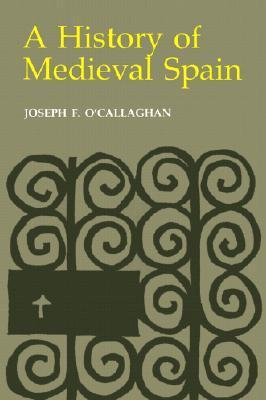

 |

|

The average rating for A History of Medieval Spain based on 2 reviews is 4.5 stars.
Review # 1 was written on 2017-04-13 00:00:00 Rue Jimbo Rue Jimboهذه الكتاب أعجبني التوثيق التاريخي لإسبانيا منذ أول سكانها حتى التواجد الإسلامي ثم سقوط الأندلس – التواجد الإسلامي – على يد إيزبيلا وفرناندو بعد تحالف ممالك شمال شبه جزيرة إيبريا - الأندلس – النصرانية. لكن أكثر ما أعجبني توثيقه لتواجد الجرمان والقوط الغربيين في العصور الوسطى في هذه المناطق حول (إسبانيا / البرتغال) وهي مادة ضعيفة بعض الشيء في المصدر العربي الأندلسي. هذا غير المقارنات التي ذكرها في في مناقشة العادات والأديان طبعًا من وجهة نظرهو وكذلك مجال العلاقات الداخلية والخارجية في شبة الجزيرة وأعتنى بتوثيق الأدب حسب كل مراحله. |
Review # 2 was written on 2013-05-01 00:00:00 Jay Perez Jay PerezA historian is both lucky and talented when confronted with a broad subject of which very little is known; when the historian can develop a captivating narrative to handle such wide realms; and when the chronicler writes well enough for readers to care. O'Callaghan succeeds in all three cases in this unique book. In North America, the knowledge of pre-Reconquista Spain, even among history buffs, is limited to a vague awareness that the Muslims conquered most of the peninsula some time in the eighth century, leaving Christians a small sliver of Basque and Galician land, until they were chased out by Ferdinand and Isabella 800 years later. O'Callaghan not only makes these characters real, he begins before the Muslim conquests in 711 AD. He makes Visigoth kings like Rodrigo seem greater than their two-dimensional representations in most texts, and describes the Visigoth leaders as literate, competent administrators faced with much more primitive tribes like the Suevi and Alans. The new historical revisionism stresses that Islamic control of al-Andalus represented a special era of high culture and scientific inquiry in Medieval Europe, but O'Callaghan shows us that not all caliphates are created equal. The Umayyad caliphate of the early conquest centuries was worth its reputation, but the later period of the Almoravid and Almohad factions represented a victory of puritanical Islamic caliphates not that different from Salafists in the modern world. While O'Callaghan does not have much use for Crusader-era Europe, he does show the odd ways that Northern Europe interacted with the besieged Iberian Christians - not just the well-known tale of Charlemagne crossing the Pyrenees to attack the Muslim infidels, but lesser known events such as the Black Prince (Edward, Prince of Wales) serving as a power broker in the 14th century. While O'Callaghan does not try to take on Catholic myth-making directly, it is clear that he sees Pelayo's "discovery" of the bones of St. James in the ninth century as mere propaganda to encourage a new crusade. A surprising element of the book regarding Catholics and Spain is how little respect most rulers of the fractured kingdoms (Castile, Aragon, Navarre) seemed to have for papal orders, up until the time of the Ferdinand-Isabella marriage. For a region willing to submit itself to the absurd Inquisition and put up with Catholic nonsense far longer than the rest of Europe, the Spanish people of the pre-1400 era did not seem to pay much attention to the Vatican, outside of greeting pilgrims making their way to Santiago de Compostela. When Spain got mixed up in The Great Schism in the early 1400s, the only reasons any leader wanted to weigh in on three popes at once and the counter-cries of "Anti-pope," were for reasons of power and influence, not belief. The final few hundred pages can tax a reader's patience due to the fact that the Spanish regions were ruled from the time of the Black Death to the time of Ferdinand by a succession of kings named Pedro, Alfonso, Fernando, etc. Let's face it, it's difficult to keep this straight, particularly with all the palace intrigue taking place in most of the regional kingdoms. One thing is clear for the time preceding the unification of modern Spain and Portugal: pogroms against Jews and Muslims did not begin with the expulsions of the late 1400s. Even though Christians lived in harmony with Muslims and Jews for centuries in Spain, the economic hardships following the Black Death in the 1350s got the blame-game rolling. Citizens were ready to take independent action against Jews, and did so with fervor in the late 1300s, and were not inclined to show much empathy for Muslims by the 15th century. O'Callaghan says his analysis of later Islamic kingdoms in Granada and elsewhere were limited by a lack of source material, though additional material has been uncovered since 1980, as evidenced by books such as L.P. Harvey's 'Islamic Spain 1250-1500.' Still, O'Callaghan gives a detailed look at all the border raids that took place from Andalusia to Morocco, showing the number of times cities like Tarifa, Algeciras, and Ceuta changed hands. This huge volume may be exhausting for those not deeply interested in Spain's roots - but it's hard to call it boring in any event. |
CAN'T FIND WHAT YOU'RE LOOKING FOR? CLICK HERE!!!